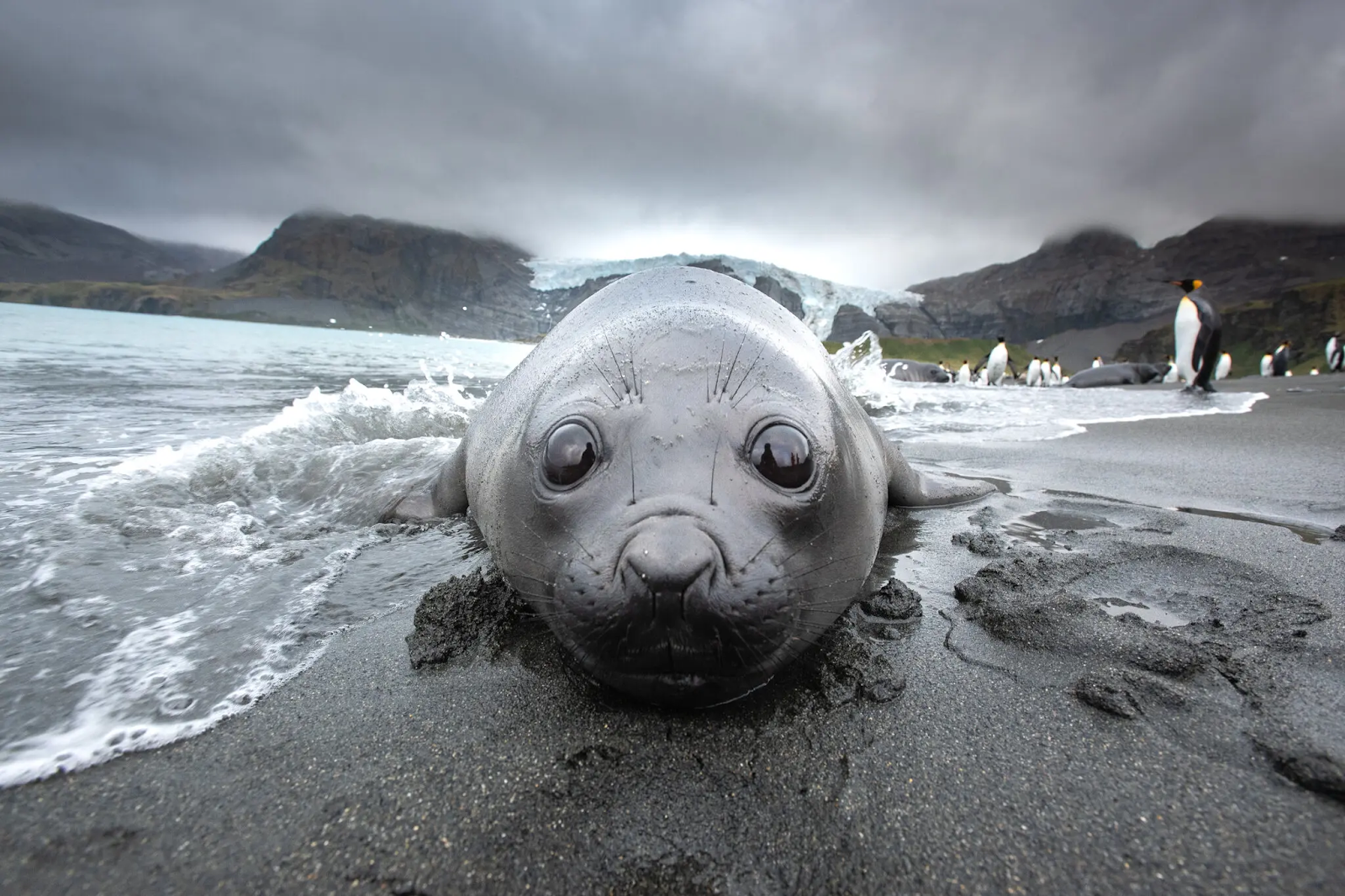It is the cold waters that are rich with plant life, and the big mammals and birds that made the Southern Ocean - the waters around Antarctica - the richest hunting grounds for whalers. The one port on South Georgia, the 1,367 square mile island nine hundred miles east of Cape Horn, is Grytviken. It is most famous as the place from which Amundsen embarked for the South Pole, and Ernest Shackleton in 1914 shoved off for two years stranded in the ice pack. And to which he returned in the legendary 900 miles small boat journey from Elephant Island at the tip of the Antarctic peninsula.
Sally Poncet. I met her when I was inGrytviken--she was counting wildlife. I seem to recall herhalf-jokingly telling me I had too much stuff (dinghy, liferaft,spinnaker poles, fisherman sail) stored on deck. As I think you know,my boat (a Damien II), is a copy of the sailboat that she wintered inAntarctica on, so she's definitely someone I'd listen to (though I stillhave all that stuff stored on deck :)
- GWC
A Portrait of South Georgia: Abundance, Exploitation, Recovery - The New York Times










